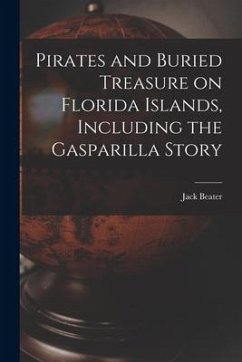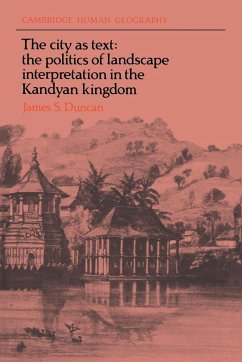
Islands, Islanders and the World
The Colonial and Post-Colonial Experience of Eastern Fiji

PAYBACK Punkte
26 °P sammeln!
The authors examine the environmental, social and economic aspects of colonial and post-colonial experience in Fiji.Fiji is a country whose recent political instability can be directly traced to its distinctive colonial and post-colonial experience. For one particular region of Fiji the authors examine the environmental, social and economic aspects of this experience, at scales ranging from national and regional to island, village and household. Discussions in Third World geography, regional economics and development planning have been full of rhetoric about 'underdevelopment', 'centre-periphe...
The authors examine the environmental, social and economic aspects of colonial and post-colonial experience in Fiji.
Fiji is a country whose recent political instability can be directly traced to its distinctive colonial and post-colonial experience. For one particular region of Fiji the authors examine the environmental, social and economic aspects of this experience, at scales ranging from national and regional to island, village and household. Discussions in Third World geography, regional economics and development planning have been full of rhetoric about 'underdevelopment', 'centre-periphery relations' and 'dependency', but seldom are the actual processes which give rise to these phenomena examined in detail. In this book the authors explore in depth the interrelations between the island landscape, the cultural geography of the islanders and the intrusive values and opportunities of the market economy. Some important lessons are to be learnt from the gap between what might be predicted from abstract theories of development and what is actually happening in the real world of politicians, planners, farmers and fishermen.
Table of contents:
List of illustrations; List of tables; Foreword: the MAB Programme and the Eastern Fiji Project G. Glaser; Editorial note; 1. On the study of islands, people and events; 2. The island landscape; 3. Capitalism and colonialism in the periphery; 4. Physical and economic externalities and their impact; 5. Vulnerability in a changing society; 6. Pampered periphery?; 7. Villages of adaptation: Batiki and Kabara; 8. Adaptation or stagnation? the case of Koro; 9. Villages of change: Taveuni and Lakeba; 10. Regional development for an island periphery; 11. Island studies and geography; Appendix: publications of the UNESCO/UNFPA Easter Fiji Project; References; Index.
Fiji is a country whose recent political instability can be directly traced to its distinctive colonial and post-colonial experience. For one particular region of Fiji the authors examine the environmental, social and economic aspects of this experience, at scales ranging from national and regional to island, village and household. Discussions in Third World geography, regional economics and development planning have been full of rhetoric about 'underdevelopment', 'centre-periphery relations' and 'dependency', but seldom are the actual processes which give rise to these phenomena examined in detail. In this book the authors explore in depth the interrelations between the island landscape, the cultural geography of the islanders and the intrusive values and opportunities of the market economy. Some important lessons are to be learnt from the gap between what might be predicted from abstract theories of development and what is actually happening in the real world of politicians, planners, farmers and fishermen.
Table of contents:
List of illustrations; List of tables; Foreword: the MAB Programme and the Eastern Fiji Project G. Glaser; Editorial note; 1. On the study of islands, people and events; 2. The island landscape; 3. Capitalism and colonialism in the periphery; 4. Physical and economic externalities and their impact; 5. Vulnerability in a changing society; 6. Pampered periphery?; 7. Villages of adaptation: Batiki and Kabara; 8. Adaptation or stagnation? the case of Koro; 9. Villages of change: Taveuni and Lakeba; 10. Regional development for an island periphery; 11. Island studies and geography; Appendix: publications of the UNESCO/UNFPA Easter Fiji Project; References; Index.














